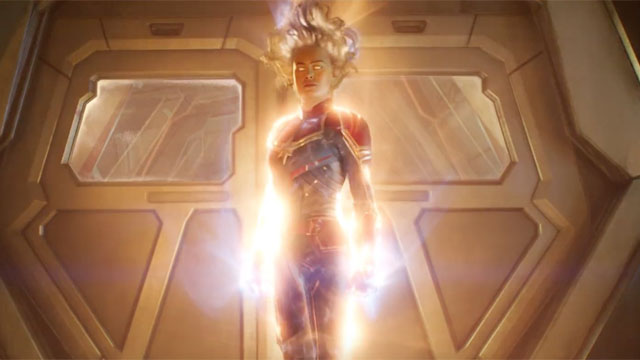Warning: There are major spoilers ahead for Captain Marvel!
Captain Marvel’s release earlier this month made it all too real that we’re nearing the finish line with this first generation of the Marvel Cinematic Universe. Avengers: Endgame will bring the MCU to its first major impasse. However, Carol Danvers’ origin story provided an enjoyable respite between the dire Avengers films that bookends it. The film unsurprisingly shot to top of the worldwide box office. Jordan Peele’s breathtaking sophomore effort, Us. was the only film to top Captain Marvel before this weekend.
But it wouldn’t be an MCU film without some outcry from within the circles of comic book fandom. This is especially prescient when it comes to Captain Marvel as it represents another tentpole in Marvel’s commitment to inclusion. The fact that Captain Marvel is the first MCU film to feature a female lead was sure to spark numerous comment sections into action. The internet didn’t disappoint.
RELATED: Kevin Feige Teases Captain Marvel Sequels Set in the Past
Disgruntled fans peppered multiple sites with derogatory reviews of the film, even before it was released. Rotten Tomatoes even altered its pre-release user review policy weeks before the films release, removing many misogynistic, xenophobic takes on a film anyone was yet to see.
However, the deluge of negative reviews rooted in “anti-SJW” sentiments returned upon the film’s release. This resulted in a headline-making disparity between critic and user reviews within hours of the Captain Marvel’s first screenings. A few popular talking points appeared among the vitriol and references to Halle Berry’s Catwoman costume. We feel that these criticisms need to be directly addressed, because they simply don’t hold up. That’s why we’re putting the most popular Captain Marvel criticisms under the microscope.
Debunking 5 Popular Captain Marvel User Reviews
-
1. Carol Danvers is a Mary Sue
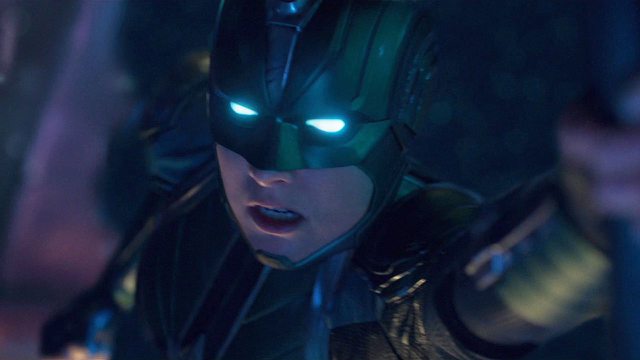
The “Mary Sue” trope has morphed from a legitimate, somewhat humorous term within the fan fiction community into a derogatory term predominantly used to bait people into arguments.
It’s no wonder that the term appears in numerous posts about Captain Marvel. Carol Danvers’ status as a “Mary Sue” doesn’t hold up simply because hardly any of the associated traits are present within her or the film. No one fawns over her beauty other than the “show me a smile” biker, and we saw how that played out. She isn’t the only character that displays their expertise in mechanics and combat. No other character displays explicit jealousy of any of Carol’s personal qualities. Some straight up criticize her strategies and practices.
The argument doesn’t hold true when it comes to her super powers as well. Many modern interpretations of the trope apply it to an uber-powered, flawless heroine, but Carol isn’t that. Yes, she displays a level of power hardly rivaled by other MCU heroes. But she also displays a level of hubris that, while empowering, could present an issue against a greater foe than her fellow Kree. Self-doubt hinders her throughout most of the film as well. A destroyed Kree dreadnought is a confidence booster, but one single act is hardly ever enough to patch up a personality trait that runs that deep.
-
2. The Skrulls Were Never
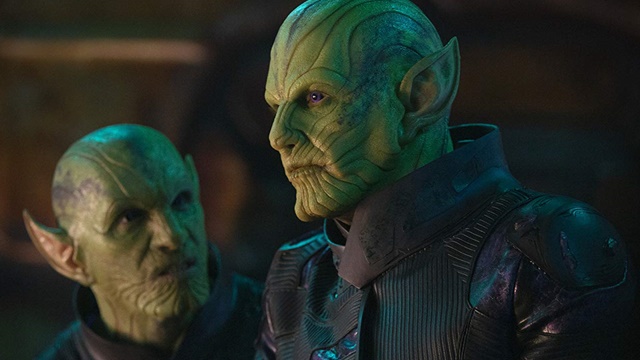
The film’s depiction of the Skrulls is a hot topic as well. The society of shapeshifters move from enemy to ally, standing as an allegory to recent refugee crises and attitudes toward immigration. This redefinition of the longtime Kree enemy is just another in a long line of purposes for which the Skrull have been utilized.
While they’ve long been cast as alien infiltrators in the comics, such representations don’t encompass every member of the species. Occupy Avengers, Runaways and Marvel: The Lost Generation all feature peaceful and benevolent Skrulls. Being born a Skrull doesn’t mean you’re predetermined to a life of evil and to present or assume such a base level classification of an entire species is a choice derived from ignorance or prejudice.
This is what makes their depiction in the film so powerful. Blind allegiance breeds fear for the misunderstood, and only when we grow to understand them can we recognize the falsities we’ve been fed.
-
3. The
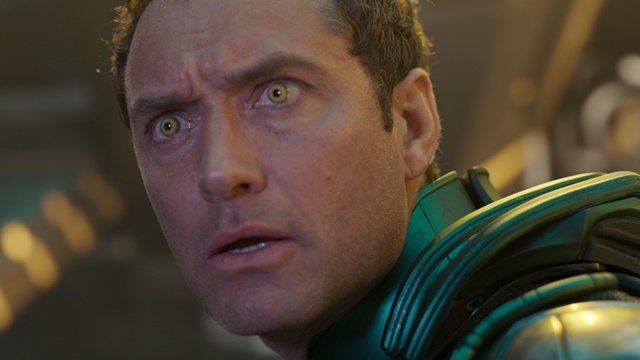
This old hat was bound to be tossed out at some point in the discourse. After all, why develop informed criticisms when you can appeal to fellow fans along sexist lines simply because the hero is a lady.
Look, female power, and the discovery of said power, isn’t a sentiment meant to displace male characters or sway public opinion to group men into circles of shame. Nick Fury is the perfect example of this. The film treats Carol’s partnership with Fury as one of mutual respect and trust. They value each other’s ingenuity and conviction. Some might even say that they’re friends by the time Carol leaves Earth.
In fact, most of the other male or male-presenting characters in the film aren’t outright bad other than Yon-Rogg. It’s never explicitly stated if her fellow Kree agents are aware of the Skrulls’ true plight, meaning that they could be operating under the same manipulative practices that Carol once did. Yon-Rogg isn’t under that influence. He actively participated in the Supreme Intelligence’s lie, keeping Carol an unwitting prisoner of Hala while constantly stressing her need to prove herself to him.
This foundation of their relationship is what makes their final confrontation so pleasing in its brevity. Carol, like any other woman, has no inherent need to prove herself to anyone of the opposite sex. So, yes, one man is unequivocally bad, but the film in no way paints its other men with such a broad brush.
-
4. The Absence of Obstacles
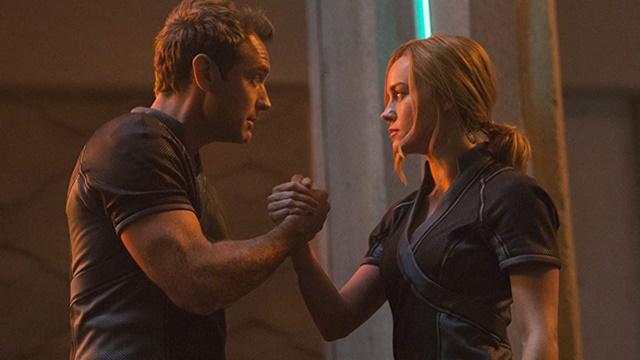
This is one of the more personally bewildering arguments that persists. If no obstacles exist for a character to best then there is no story to tell, and Captain Marvel definitely has plenty of story. Here’s a handy list for reference:
- Carol’s brainwashing by the Kree
- The dampening of Carol’s power by the Kree
- Carol’s attempt to reconcile her actions as a Kree operative
- Dismissing Yon-Rogg’s constant gaslighting
- Physically battling and defeating the Kree
- Breaking free of the Supreme Intelligence’s hold
That’s more than enough to dismiss this point as a non-starter.
-
5. No Connection To Avengers: Endgame
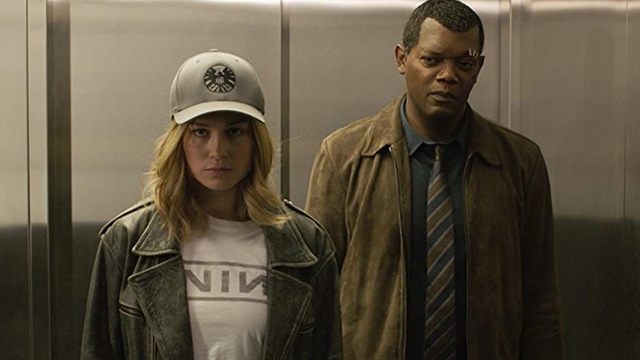
Seeing as this is the final MCU film before Avengers: Endgame hits theaters, Captain Marvel has the unique responsibility of introducing a new character while setting the stage for the ultimate MCU climax.
That charge imbued fans, hungry for more after Infinity War’s impactful ending, with the belief that Captain Marvel would deliver substantial content related to the Avengers’ final act. The film might not have utilized this link to its fullest potential, but to say that Captain Marvel held no connection to Endgame is beyond shortsighted.
The obvious choice to wave this claim away is the mid-credits scene, but it isn’t the film’s only reference to its anticipated follow-up. Beyond outlying details such as how Nick Fury lost his eye, the film features the earliest appearance of the Tesseract and displays the meager beginnings from which Earth’s forces grew into intergalactic defenders.
If that isn’t enough, Nick Fury’s time with Carol Danvers directly impacts the creation of the Avengers initiative. Cap might be the first Avenger, but Carol inspired their namesake. Rolls off the tongue much smoother than “Protector.”
